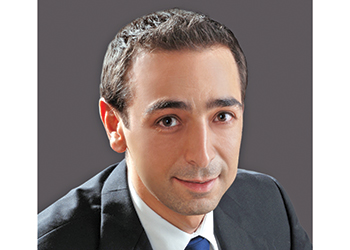 Kharouf ... technology focus.
Kharouf ... technology focus.
Hotels in the Middle East should invest in technology thatsupports smart, sustainable hospitality, says SHADI KHAROUF*
The hotel pipeline for the Middle East and Africa (MEA) consists of 654 hotels, with a total of 150,762 rooms under contract in the region, and a 21.6 per cent increase in year-over-year room construction, according to the April 2015 STR Global Construction Pipeline Report.
The numbers are impressive, with especially strong growth in the upper end of the hotel market. But with this growth comes the challenge of sustainability, especially given the economic impact of rising energy consumption in hotels.
Dubai is at the heart of the regional hotel industry and is one of the most active hospitality markets in the world, having built its global reputation on luxury and the quality of visitor experience, environment, and leisure and cultural activities. This includes world-class hotels such as the Burj Al Arab Jumeirah, which was voted as the world’s and Middle East’s best hotel for 2015 by readers of Ultratravel, the Daily Telegraph’s luxury magazine.
A world-class hospitality hub, Dubai is already at the heart of the region’s hospitality sector and with World Expo 2020 stimulating further growth, Dubai World Central (DWC) alone will offer at least 20,000 hotel rooms by 2025.
Building a world-class and sustainable hospitality sector in Dubai demands intelligent use of technology to deliver the appropriate guest experience in all segments of the industry – including the upscale luxury end of the market – cost effectively.
The hotel room’s role is to offer guests a ‘residence away from home’ and, of course, hotel guests want the best and the latest technology, just like at home. The challenge is that hotels, and hotel guestrooms especially, consume significant amounts of energy; this means that hotels have to balance the demands of guests for the latest and most stylish room technology whilst making sure that the room is a sustainable asset.
So, hotels have to consume and conserve energy as effectively as possible. Whilst increasing technology may raise consumption, it also has a key role to play in conserving energy – by managing light and temperature. Technological solutions for hotels include control systems for guestrooms, public areas, restaurants and amenities such as spas and conference facilities, as well as back-of-house. Management systems for light, temperature and shade control can also integrate with property management and building management systems.
Light and temperature control plays a vital role in the overall guest experience of a hotel room and lighting alone typically accounts for 25 per cent of an organisation’s electricity consumption (source: Carbon Trust). Control of the room environment by the guest and by the hotel when the room is unoccupied adds value to the guest’s experience and significantly reduces energy costs for the hotel.
Guestroom solutions will enable hotels in the region to reduce energy consumption and manage costs, whilst enhancing guest experience and comfort, by offering a high degree of personal control over the guest room environment. Plus, smart guest detectors and controls help to save energy by turning lights off when a room is unoccupied or initiating HVAC (heating, ventilation, air-conditioning) cutbacks when a room is unsold.
These guestroom solutions comprise contemporary-design, energy-efficient control options that help differentiate a property or hotel, where guests can step into a room in which lights and shades automatically adjust to a predetermined welcome scene. Intuitive control solutions also ensure that guests can easily adjust the environment with a touch of a button, allowing tactile and audible feedback, automatic programming, control and comfort. They save energy, reduce operating costs and increase guest satisfaction and loyalty.
When guests stay in Dubai, they expect a very high quality experience and hotels need to meet this expectation elegantly, sustainably and cost effectively. Guestroom management systems keep everyone happy – the guest and hotel management.
It’s a win-win for everyone.
*Shadi Kharouf is Middle East sales director for Lutron, the global lighting control expert. Founded in 1961, the US-headquartered company offers 17,000 energy-saving products ranging from dimmers for the home to lighting management systems for entire buildings. Lutron products are sold in more than 100 countries around the world.








.jpg)




.jpg)




























.jpg)
































